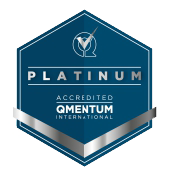Knowledge of Patients on Breast Cancer Treatment about Integrative and Complementary Practices in Health
DOI:
https://doi.org/10.5327/prmj.2022.003Keywords:
integrative medicine, integrality in health, medical oncology, phytotherapy, breast neoplasmsAbstract
Living with breast cancer causes emotional repercussions and adverse effects of the treatment itself. The Integrative and Complementary Practices (ICP), a collective of medical systems and therapeutic resources outside the conventional medical care with an integral and broader view. Objective: Discover how much patients know about the ICP, how many practices its, the opinions and use in an oncological context at Ophir Loyola Hospital. Methods: Prospective cross-sectional descriptive study using questionnaires made by authors, during April and August 2021, with patients in the Ophir Loyola Hospital. Results: The sample showed the profiles of 103 women, 94,17% of patients did not know about the Integrative Oncology, and 83,5% did not know about ICP. After an explanation, 93,2% declared knowing at least one of the practices. The most commonly known practices were Yoga, Acupuncture, Phytotherapy, Meditation, Massage Therapy, and Apitherapy. Phytotherapy, Apitherapy, Massage Therapy, and Meditation are the most popular practiced ones, and 38,83% of patients reported did any practice. Further, 78,64% thought the ICP had a scientific base, 66,02% felt they had no contraindication, and 50,49% thought they had no side effects. Conclusion: The research indicates the demand for professional training in the ICP area for prevent complications in order to treat and care for patients. Thus, promoting educative actions about the ICP is essential, as it would offer knowledge to avoid risks during treatment, seen as there are patients who already use these practices, like Phytotherapy.
Downloads
References
World Health Organization. Cancer today. Genebra: World Health Organization; 2021.
Sawada NO, Nicolussi AC, Okino L, Cardozo FMC, Zago MMF. Avaliação da qualidade de vida de pacientes com câncer submetidos à quimioterapia. Rev Esc Enferm USP. 2009;43(3):581-7. http://doi.org/10.1590/s0080-62342009000300012
Johnston PG, Spence RAJ. Oncologia. 1ª ed. Rio de Janeiro: Guanabara Koogan; 2003.
Gevitz N. Three perspectives on unorthodox medicine. In: Gevitz N.
Other healers: unorthodox medicine in America. Baltimore: John Hopkins University Press; 1998. p.1-28
Saquib J, Parker BA, Natarajan L, Madlensky L, Saquib N, Patterson RE, et al. Prognosis following the use of complementary and alternative medicine in women diagnosed with breast cancer. Complement Ther Med. 2012;20(5):283-90. http://doi.org/10.1016/j.ctim.2012.04.002
Greenlee H, DuPont-Reyes MJ, Balneaves LG, Carlson LE, Cohen MR, Deng G, et al. Clinical practice guidelines on the evidence-based use of integrative therapies during and after breast cancer treatment. CA Cancer J Clin. 2017;67(3):194-232. http://doi.org/10.3322/caac.21397
Siegel P, Barros NF de. O que é a Oncologia integrativa? Cad Saúde Colet. 2013;21(3):348-54.
Brasil. Política nacional de práticas integrativas e complementares no SUS: atitude de ampliação de acesso. 1st ed. Brasília: Ministério da Saúde; 2008.
Fulop JA, Grimone A, Victorson D. Restoring Balance for People with Cancer Through Integrative Oncology. Prim Care. 2017;44(2):323-35. http://doi.org/10.1016/j.pop.2017.02.009
Paiva SMP, Manfrini RM, Silva NM, Miranda DMS, Monteiro FK. Avaliação do uso das práticas integrativas e complementares em saúde por parte da população juiz-forana. BJHP. 2019;1(4):32-45.
Marques LAM, Vale FVVR, Nogueira VAS, Mialhe FL, Silva LC. Atenção farmacêutica e práticas integrativas e complementares no SUS: conhecimento e aceitação por parte da população sãojoanense. Physis. 2011;21(2):663-74. http://doi.org/10.1590/s0103-73312011000200017
Bastos BR, Pereira AKS, Castro CC, Carvalho MMC. (2018). Perfil sociodemográfico dos pacientes em cuidados paliativos em um hospital de referência em oncologia do estado do Pará, Brasil. Rev Pan-Amaz Saude [online]. 2018;9(2):31-6. http://doi.org/10.5123/s2176-62232018000200004
Tesser CD, Sousa IMC, Nascimento MC. Práticas integrativas e complementares na Atenção Primária à Saúde brasileira. Saúde Debate. 2018;42(Spe1):174-88. https://doi.org/10.1590/0103-11042018S112
Barros AL, Pereira IPC, Goncalves de Oliveira KRDS, Silva Júnior MR, Real MMF, Real Junior MMF, et al. The use of integrative and complementary practices in PICS Health for mental disorders. Braz J Develop [Internet]. 2021;7(8):78636-46. https://doi.org/10.34117/bjdv7n8-199
Portal da Secretaria de Atenção Primária a Saúde [Internet]. Os cuidados complementares buscam melhorar a qualidade de vida do paciente durante a quimioterapia. 2018 [acessado em 20 nov 2021]. Disponível em: https://aps.saude.gov.br/noticia/2893
Brito, J. Sesma discute sobre a implantação da política de práticas integrativas e complementares [Internet]. [acessado em 22 abr 2022]. Disponível em: https://redepara.com.br/Noticia/220114/sesma-discute-sobre-a-implantacao-da-politica-de-praticas-integrativas-e-complementares
Pinto LN, Flor ASSO, Barbosa, WLR. Fitoterapia popular na Amazônia Paraense: uma abordagem no município de Igarapé-Mirí, estado do Pará nos anos de 2000 e 2008. Rev Ciênc Farm Básica Apl. 2014;35(2):305-11.
Xavier LM, Taets GGCC. A importância de práticas integrativas e complementares no tratamento de pacientes com câncer. Enferm Bras. 2021;20(1):82-93. https://doi.org/10.33233/eb.v20i1.4379
Cordeiro CHG, Chung MC, Sacramento LVS. Interações medicamentosas de fitoterápicos e fármacos: Hypericum perforatum e Piper methysticum. Rev Bras Farmacogn. 2005;15(3):272-8. https://doi.org/10.1590/S0102-695X2005000300019
Latte-Naor S, Mao JJ. Putting integrative oncology into practice: concepts and approaches. J Oncol Pract. 2019;15(1):7-14. https://doi.org/10.1200/JOP.18.00554
World Health Organization. Estrategia de la OMS sobre medicina
tradicional – 2014-2023. Genebra: World Health Organization; 2013.
Machado K. Práticas integrativas eficazes no tratamento do câncer – CABSIN. 2020 [acessado em 20 nov 2021]. Disponível em: https://cabsin.org.br/membros/2020/12/10/pics-eficazes-cancer/
Chiu HY, Hsieh YJ, Tsai PS. Systematic review and meta-analysis of acupuncture to reduce cancer-related pain. Eur J Cancer Care (Engl). 2017;26(2). https://doi.org/10.1111/ecc.12457
Valadares CV, Beraldo NB. No Pará, 88 municípios utilizam práticas integrativas no tratamento de pacientes do SUS. 2018 [acessado em 20 nov 2021]. Disponível em: https://antigo.saude.gov.br/noticias/agencia-saude/42808-no-para-88-municipios-utilizam-praticas-integrativas-no-tratamento-de-pacientes-do-sus
Nascimento MC, Barros NF, Nogueira MI, Luz MT. A categoria racionalidade médica e uma nova epistemologia em saúde. Ciênc Saúde Coletiva. 2013;18(12):3595-604. https://doi.org/10.1590/s1413-81232013001200016
Goedert MCCC, Silva LV, Maia PR, Rabelo KLMA, Gonçalves NS, Silva AV. Os benefícios da medicina integrativa e os desafios para sua implantação no Brasil: revisão de literatura. REAS. 2021;13(7):e7893. https://doi.org/10.25248/reas.e7893.2021




